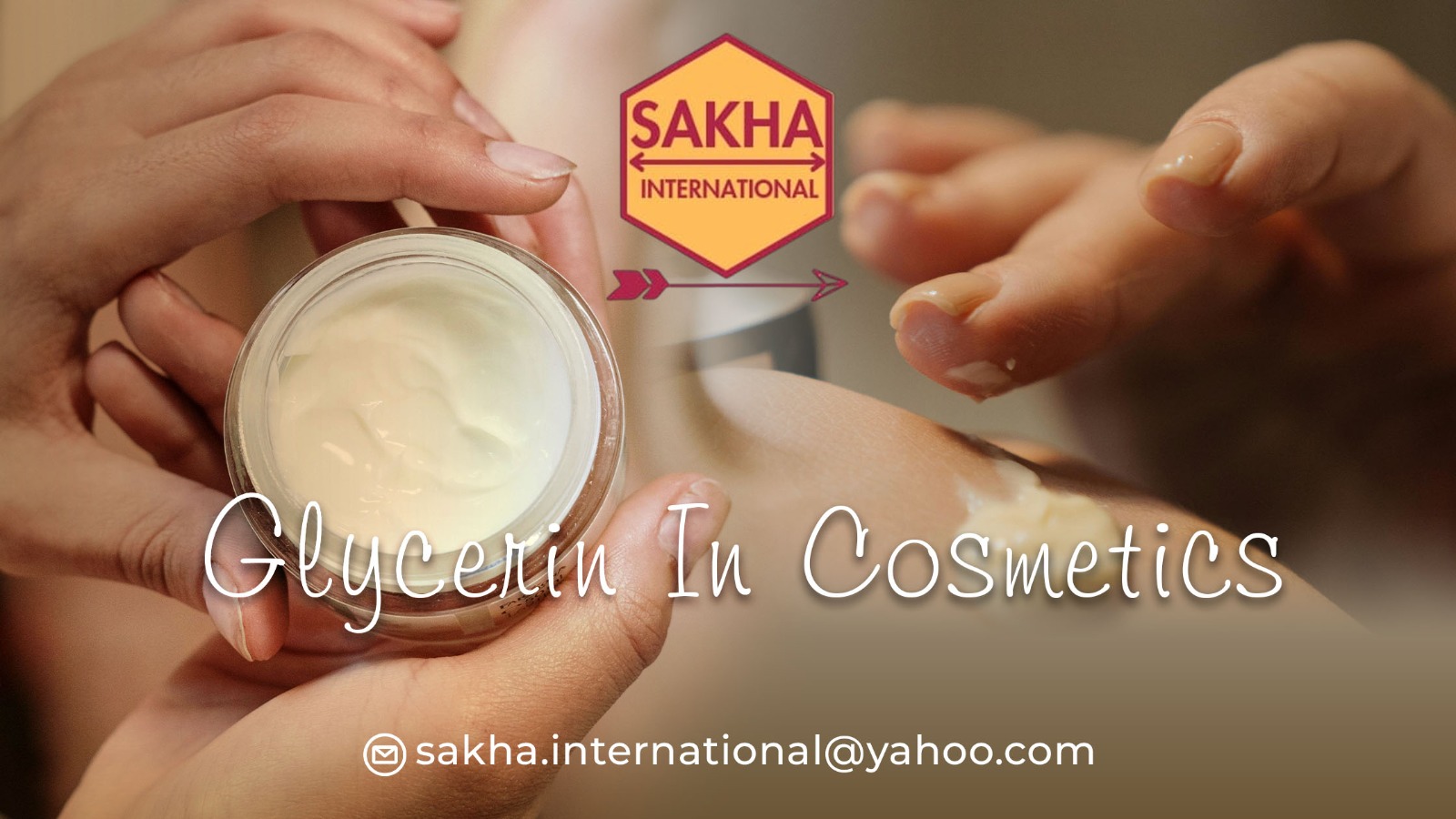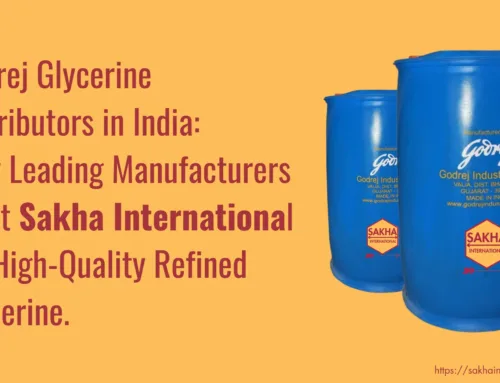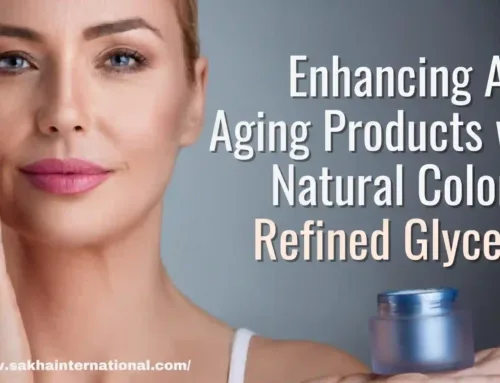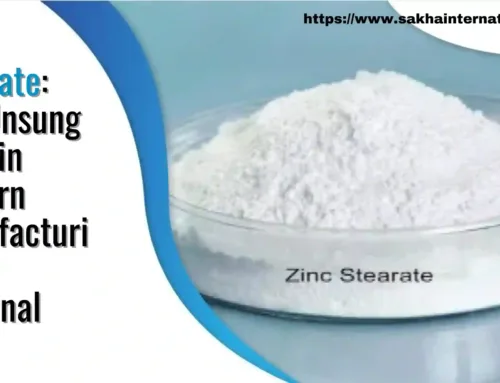As a humectant with exceptional moisturizing properties, glycerine is a historically important ingredient in skincare products that can be synthetically or derived from plant sources. Cosmetics have used it extensively because it works so well to keep skin hydrated. Refined Glycerine is used in various skincare products to draw moisture to the face and provide a glowing, refreshed appearance. In addition to showcasing glycerine’s many benefits and its capacity to enhance overall skin health, this article delves into the scientific underpinnings of its relevance in skincare.
What is glycerine?
Glycerine—or glycerol—occurs naturally and is derived from lipids found in plants or animals. It is a clear liquid with a little sweetness, similar to syrup but odourless.
Glycerine, which falls under the humectant group, can attract and draw moisture to the skin’s surface from both the environment and the skin’s deeper layers. Glycerine, frequently used in skin care products in conjunction with occlusives, helps keep skin hydrated by halting water loss.
This skincare product’s synergistic combination maintains an optimum hydration balance, encouraging appropriate moisture levels and skin health.
Among the several humectants that are available, glycerine is the most effective in increasing the amount of moisture in the epidermis:
- alpha hydroxy acids,
- such as sorbitol urea,
- propylene glycol,
- butylene glycol,
- hyaluronic acid,
- lactic and glycolic acid
Glycerine is used for Skin Care.
-
Reduce Acne
Many people use a variety of skincare products in an attempt to treat their typical acne problem. Paradoxically, a few of these supposed to be helpful products could make things worse. Glycerol, on the other hand, sticks out as a mild yet efficient solution. Unlike strong skincare products that clog pores and exacerbate acne, glycerine is non-comedogenic and oil-free. Because it doesn’t irritate skin, it’s a good option for acne-prone skin because it hydrates without aggravating it.
-
Moisturizes Skin
Because it increases skin moisture content while reducing water loss, glycerine is a superior moisturizer. Skin moisturized with glycerine-based products is softer and more hydrated. Several studies support its effectiveness in addressing dryness during the colder months. Glycerine is a dependable ally for preserving supple and nourished skin all year round due to its shown capacity to improve skin moisture.
-
Anti-ageing treatment
Examine the closest mirror briefly, focusing on any creases or tiny lines that could have developed over time. Skin tone and texture might naturally change as we age, but fear not. Glycerine, or lotions infused with glycerine, provides a way to restore the brightness of your skin. Glycerine is an excellent way to retain moisture in your skincare regimen and give your skin a healthy, radiant appearance. Accept the rejuvenating properties of glycerine to keep your skin looking young and fight against age indications.
-
Dry Skin
When cosmetics don’t absorb well, it may frustrate those with dry skin. Small fissures and continuous itching are signs of dryness. Enter items made with glycerine, a soothing and reparative solution. In addition to providing comfort and repair for dry skin, glycerine may efficiently lock in moisture and heal skin fissures.
-
Heal Skin
When used consistently, glycerine can repair dry, cracked, or damaged skin, making it a skin saviour. It may also be used to easily restore your natural complexion by reversing the effects of tanning.
-
Safe
Examine the components of every new skincare product carefully for any possible harshness before incorporating it into your routine. Some makeup products can irritate the skin and clog pores, leading to acne or blackheads. Choosing glycerine is a wise decision because it is one of the safest solutions. Glycerine is a mild and dependable option for all skin types because of its non-comedogenic nature, which guarantees it won’t clog pores, and its moisturizing qualities prevent skin dryness.
-
Protects
Products containing glycerol keep moisture in and avoid drying out or cracking. It helps protect the skin from UV radiation as well.
-
Reduce Dullness
Using glycerine-based makeup regularly helps to cure skin blemishes and reduce dullness. A healthy and glowing complexion is promoted by glycerine, which also maintains the skin’s pH balance.
Benefits of Glycerine
Though glycerine is most often known for its moisturizing qualities, it has several advantages beyond simple hydration.
The following are a few lesser-known benefits of glycerine:
- In addition to its moisturizing properties, glycerine is an efficient natural hydrator because it moves moisture from the skin’s outermost layer, the epidermis, to its deeper layers, the dermis.
- Also, glycerine has calming qualities, especially glycerine made from plants, which is kind to delicate skin and helps relieve flash irritation.
- The skin’s moisture barrier protects it from external agents, and glycerine is essential to this process.
Among the glycerin’s lesser-known benefits are:
- Smoother skin texture is a result of its moisturizing properties. Ironically, glycerine also helps with exfoliation, brightening the face and making the complexion look more vibrant.
- Maintaining the skin’s brightness and general appearance depends on its therapeutic qualities.
- Glycerine helps to clear the skin by reducing pore clogging because it is non-comedogenic.
- When paired with other compounds, its compatibility with various substances makes it a great option for moisturizing.
Furthermore, glycerine has anti-ageing qualities by enhancing the skin’s natural moisture content, which makes wrinkles and fine lines less noticeable.
Moreover, glycerine functions as an organic preservative, providing skincare products with plant and herb extracts with stability and protection.
Can glycerine irritate my skin?
Since glycerine is a humectant, it draws moisture from its surroundings, especially from the skin’s deeper layers under low-humidity conditions. This may result in dry skin and blister development in very dry situations.
Using pure glycerine is not advised since it might result in blistering. Instead, look for skincare products that incorporate glycerine as a component. Rosewater is a common ingredient in natural skincare regimens because of its well-known pore-tightening and moisturizing qualities.
One typical suggestion from natural cosmetics proponents is combining glycerine with rosewater. Roses are known to have anti-inflammatory and antioxidant properties, which help explain why rose oil is good for skin health, according to a 2019 study.
Conclusion
Glycerine’s extensive usage in makeup highlights how crucial it is to contemporary skincare formulae. Glycerine transforms the beauty business by providing practical answers to various skincare problems. It is prized for its healing, calming, and hydrating qualities. Its use in cleansers, serums, and moisturizers indicates a dedication to quality and efficacy in the quest for bright, nourished skin.
FAQ
What does glycerine do for your skin? Is glycerine good for your skin?
Glycerine, which is versatile, moisturizes the skin and supports the skin’s barrier function. Beyond moisturizing, glycerine draws moisture from the skin’s deepest layers to the surface, giving the appearance of youthful, plump skin.
One of its benefits to the skin is that it effectively minimizes the appearance of fine lines and wrinkles because of its hydrating capabilities.
Is glycerine suitable for vegans?
Indeed, most of the glycerine in this process originates from plants, but occasionally, it also comes from animal fats.
Is it okay to use glycerine on the skin?
Yes, glycerine may be applied to the skin safely. Remember that diluting pure glycerine with other products or components, such as rosewater or vitamin E, is preferable when using it in homemade skincare products to avoid causing pain.
Does glycerine not cause diarrhoea?
Due to its complete non-comedogenicity—its ability to prevent pore clogging—glycerine is ideal for those with oily skin.
Can I use glycerine on my face?
Indeed, it is! Because it helps pull moisture from your skin’s deeper layers, glycerine, as we just discussed, plumps up the epidermis to give your skin a young appearance. It also leaves your skin feeling more hydrated. Almost all of our skincare products have glycerine as a component.
Is glycerine safe to apply on my lips?
Logically! glycerine for lips: gloss & moisturizer. Smooth skin and reduce lines. Ideal for soft, hydrated lips prone to wrinkles.






Leave A Comment